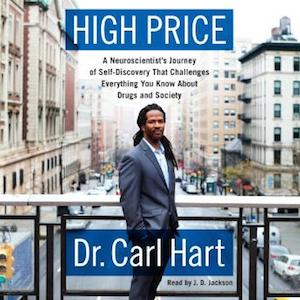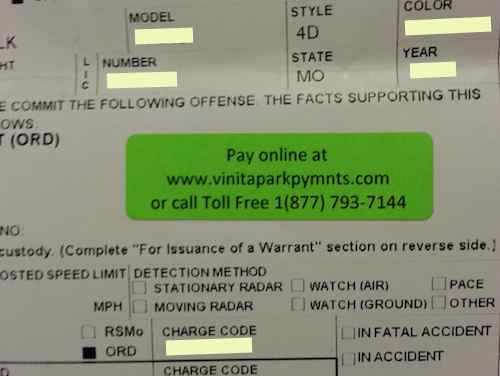Experts & Public Question McCulloch’s Grand Jury Process
A week ago the world learned the grand jury did not indict Darren Wilson for killing Michael Brown.
It was a big Monday night for St. Louis County prosecutor Robert McCulloch. Stepping to the lectern, with the eyes of the country fixed firmly on Ferguson, McCulloch used his moment in the spotlight to deliver an odd, extended ramble before finally declaring that no charges would be filed against police officer Darren Wilson in the shooting death of Michael Brown. As we think about the subsequent outrage, feast on images of the looting and fires, and pore over the damage assessments and arrest counts, it is worth taking a moment to talk about the road to this ruinous place and the ways in which McCulloch’s decisions exacerbated the problem. (The Independent Grand Jury That Wasn’t: The Ferguson prosecutor’s bizarre, self-justifying press conference revealed his own influence.)
Well, in some parts of the world it was already Tuesday, because it was nearly 8:30pm (CST) Monday night when Bob McCulloch finally said:
AFTER THEIR EXHAUSTIVE REVIEW, THE GRAND JURY DELIBERATED AND MADE THEIR FINAL DECISION. THEY DETERMINED THAT NO PROBABLE CAUSE EXISTS TO FILE ANY CHARGES AGAINST OFFICER WILSON AND RETURN A NO TRUE ON EACH OF THE FIVE INDICTMENTS.
It has been dark outside for hours at this point, it’s no wonder the night played out the way it did. This should’ve been scheduled for 8am, not 8pm.
McCulloch did this knowing that this protest movement, when enflamed, can take on a very different nocturnal character. In the turbulent days and nights of August, when Ferguson was placed forever on the map of the world’s struggles, police authorities came to distinguish between day protests, which were multi-generational and invariably peaceful, and night protests, which were younger and much more unpredictable. Further, McCulloch decided to deliver this inflammatory news at night when national intelligence about outside agitators’ plans to infiltrate Ferguson when the decision is announced was so harrowing it helped influence Gov. Jay Nixon to preemptively declare a State of Emergency and conduct a press conference where the Governor rattled his sabre like invading hordes were descending on Missouri. (The fire Bob McCulloch started)
From a New York Times editorial:
The St. Louis County grand jury’s decision not to indict the white police officer who in August shot and killed Michael Brown, an unarmed black teenager, would have generated widespread anger and disappointment in any case. But the county prosecutor, Robert McCulloch, who is widely viewed in the minority community as being in the pockets of the police, made matters infinitely worse by handling this sensitive investigation in the worst possible way.
First, he refused to step aside in favor of a special prosecutor who could have been appointed by Gov. Jay Nixon of Missouri. He further undermined public confidence by taking a highly unorthodox approach to the grand jury proceeding. Instead of conducting an investigation and then presenting the case and a recommendation of charges to the grand jury, his office shifted its job to the grand jury. It made no recommendation on whether to indict the officer, Darren Wilson, but left it to the jurors to wade through masses of evidence to determine whether there was probable cause to file charges against Officer Wilson for Mr. Brown’s killing. (The Meaning of the Ferguson Riots)
Aside from the poor timing of the decision, the months long process was a farce. At the beginning of November I said:
If McCulloch wanted an indictment he’d have handled the case differently, this has been an elaborate act to give the appearance of due diligence while guaranteeing no indictment. (McCulloch’s Process Guarantees No Indictment)
In the last week many in legal & law enforcement professions have combed through the thousands of pages of documents, including former prosecutor Nancy Grace:
Look, do you know how many times I have sided against a cop? Never. But to me, this is bigger than a badge. And I don’t like speaking out against a cop, but this doesn’t add up.
Here her reaction in the video below:
Direct link to above video on CNN here. Another quote from the above:
The grand jurors are like sheep, they’re babes in the woods. The prosecutor’s duty is to seek the truth. I am telling you that the prosecutors, if they want an indictment, they will get an indictment.
This is related to the 1985 comment by then chief judge of New York, Sol Wachtler, that a prosecutor can get a grand jury to indict a ham sandwich if he/she wants. Ironically, a few years later the Republican judge was indicted, convicted and sentence to 15 months in prison, see The Judge Who Coined “Indict a Ham Sandwich” Was Himself Indicted. McCulloch didn’t want an indictment, he just wanted the appearance of justice.
Back to the grand jury…
On MSNBC Lawrence O’Donnell pointed out how prosecutors gave the grand jury a copy of a 1979 Missouri law that was ruled unconstitutional nearly 30 years earlier, in 1985!
The assistant prosecutors misled the grand jury on the law. At the conclusion of the almost 22 minute segment Lawrence O’Donnell said:
With prosecutors like this, Darren Wilson never really needed a defense lawyer.
The other part is Darren Wilson was allowed to testify for 4 hours without cross examination from the prosecutors. Civil rights attorney Lisa Bloom:
So many missed opportunities for cross examination of Wilson. Should have been a grueling session, not the tea party the transcript shows. (see A prominent legal expert eviscerates the Darren Wilson prosecution, in 8 tweets)
A long-time personal friend, an attorney, posted the following on Facebook:
Being a lawyer, I thought I might post some analysis of the grand jury process in the Darren Wilson matter. My grave concern over the conduct of this matter is the prosecutor effectively tried to make it look like a “jury” trial was conducted, without actually bringing the charges against Wilson to cause this to occur. His attempts to demonstrate an exhaustive introduction of physical and witness offered evidence (of the type you typically don’t see at grand jury proceedings) as well as a seeming lack of partisanship only reinforce his attempt to short circuit the normal process and obtain a desired result in a politically sensitive matter. He clearly must have known what he was doing as a grand jury hearing and a jury trial bear little resemblance, despite the common name. A grand jury has no power to convict, only to recommend that a defendant stand trial (subject to due process protections). A regular “petit” jury trial is a constitutionally protected, complicated process that is designed to maximize the likelihood of a fair result, taking into account the challenges associated with individual citizens rendering the verdict. In a jury trial, a judge presides to ensure that the lawyers behave appropriately and to minimize the possibility that a jury is unfairly biased by evidence they are not competent to disregard or qualify (knowing that jurors are often swayed by emotion and subject to clouded reasoning); the judge uses a body of law called the “rules of evidence”, developed over centuries in order to minimize problems caused by the nature of the human participants in the process. A jury trial is inherently and intentionally a partisan battle (mediated by the judge) in which the prosecution and defense vigorously attempt to prove their case, allowing the jury to watch the sausage being made and inform their opinion; cross-examination of the other side’s witnesses is a crucial aspect of exposing lies, bias, ignorance, or other factors that might make that witnesses’ testimony unreliable. A jury trial is typical open to the victims, the families, the public and the press, the openness being crucial to avoiding corruption (or the appearance of corruption) as well as shining a light on the process in order to maximize its integrity. And, a jury trial is subject to appeal so that any errors made by the judge or the other parties in the conduct of the trial can be reviewed by other senior judges, outside of the realm of politics, and overturned if they posed the possibility of impermissibly biasing the verdict. The rules governing a jury trial are certainly not perfect in concept or execution but they have been put into place over generations in order to avoid precisely what happened at the “grand” jury trial of Darren Wilson, an informal procedure closed to the public, not mediated by a judge, not governed by the rules of evidence, not partisan in nature, containing no cross examination and the exposures that typically are made through that process, and not subject to appeal to a higher court. The prosecutor, in his current position for I think 23 years, clearly has to understand the failings of the highly unusual process he conducted but obviously tried to make it appear that Darren Wilson had been effectively tried and acquitted. While there is nothing illegal associated with the prosecutor’s actions as he is elected to oversee the grand jury and determinations if charges are to be brought, the underlying complaints of the protestors about the abuse of power of law enforcement and the distortions of the criminal justice system against minorities are only reinforced and made more manifest by the actions of this prosecutor, in my relatively well-informed opinion.
The problems started on August 9th, with the how the Ferguson Police handled the case:
From the reams of grand jury testimony and police evidence, here are some key points that, if this case had gone to trial, could have been highlighted by prosecutors (not including the witnesses who appeared to contradict Wilson’s testimony):
- Wilson washed away blood evidence.
- The first officer to interview Wilson failed to take any notes.
- Investigators failed to measure the likely distance between Brown and Wilson.
- Investigators did not test Wilson’s gun for fingerprints.
- Wilson did not immediately turn his weapon over to investigators after killing Brown.
- An initial interview with investigators was delayed while Wilson traveled to the hospital with his superiors.
- Wilson’s initial interview with the detective conflicts with information given in later testimony.
Source: Ferguson Grand Jury Evidence Reveals Mistakes, Holes In Investigation
More from lawyer Sunny Hostin:
Justice hasn’t been done in the death of Michael Brown. A special prosecutor needs to be appointed to bring charges against Darren Wilson so we can see in a normal jury trial overseen by a judge if a jury will convict or acquit.
— Steve Patterson


